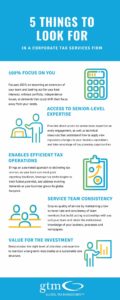Donald Trump’s victory in the 2024 presidential election will undoubtedly have long lasting implications for the future of U.S. tax policy. Trump’s first term as president gave us the Tax Cuts and Jobs Act of 2017 (TCJA) which, unless extended through new legislation, has several key provisions expiring at the end of next year. Throughout the election cycle, many tax professionals were asking themselves: What will come after the TCJA? And will ambitious, new tax legislation even be possible in the event of divided government?
Now that the votes have been counted, we’re starting to get some answers and a clearer picture of what the tax landscape may look like under another Trump term in office. With Republicans controlling both the White House and Congress, it now seems evident that some form of tax legislation will be coming from Washington and possibly sooner than originally anticipated. What form this new tax code takes will undoubtedly have a major impact on business leaders, economic operations, and investment decisions — not to mention the tax professionals tasked with interpreting and implementing new legislation. Here is what we know today and insight into the potential impact on the election results may have on tax policy.
TCJA Expiring Provisions
Back in 2017 when the TCJA was enacted, it dramatically changed the landscape of corporate taxation. But these changes weren’t permanent. Many of the legislation’s key provisions, all of which are favorable, are set to be altered or eliminated for tax years after December 31, 2025.
With a Trump administration now coming into office, we would expect that the majority of key TCJA provisions will be extended or renewed. This might very well eliminate some of the unfriendly provisions that are currently on the horizon. But in the interest of being prepared for the worst-case scenario, here is a look at some of the major provisions under the current TCJA legislation that are set to expire:
- Bonus Depreciation: The days of 100% bonus depreciation are behind us. For 2024, we currently have 60% bonus depreciation, but this is scheduled to continue to decrease by 20% per year until 2027, at which point it will be completely phased out.
- GILTI (Global Intangible Low-Taxed Income): Since 2018, we have enjoyed the 50% GILTI deduction on earnings derived from our foreign subsidiaries. Beginning in 2026, that deduction is decreased to 37.5%
- FDII (Foreign-Derived Intangible Income): FDII is a tax incentive for U.S. corporations that generate income from foreign markets. Since 2018, the FDII deduction has served to reduce the effective tax rate on eligible income to 13.125%. However, starting in 2026 the effective tax rate on eligible income goes up to 16.4%.
- BEAT (Base Erosion Anti-abuse Tax): The BEAT targets large U.S. multinational corporations who shift profits to their foreign subsidiaries by applying a minimum tax rate of 10% on modified taxable income. Beginning in 2026, the BEAT rate increases to 12.5%. In addition, certain credits that are able to reduce BEAT (e.g., R&D Credits) will no longer be available to reduce this minimum tax.
- International: The well-known, taxpayer-friendly “look-through rule,” which is designed to prevent certain types of income from being classified as Subpart F income when received by a controlled foreign corporation (CFC) from a related CFC, is scheduled to expire. This will create taxable income in the form of Subpart F income for U.S. shareholders of CFCs that would have otherwise been excluded in past years.
- Section 199A (Qualified Business Income Deduction): Established as a key TCJA provision to counteract the newly created tax parity between C-corporation’s taxed at 21% versus the adjusted individual tax brackets, Sec 199A was meant to incentive owners of non C-Corporation businesses to maintain their current structure by providing a 20% deduction of Qualified Business Income from a domestic businesses operated as a sole proprietorship or through a partnership, S corporation, trust, or estate. Currently, the provision is set to expire as of December 31, 2025.
Tax Rates
As you might expect, a Republican-controlled government will look to reduce tax burdens. Trump has made it clear that he plans to further reduce the corporate tax rate from 21% to 20%, with an additional reduction of the effective tax rate to 15% for corporations that manufacture domestically. (He has not yet laid out details regarding how a corporation would qualify for such a reduced rate). The incoming Trump administration believes this is critical to make America more competitive globally, allows them to reinvest in their businesses, and incentivizes companies to keep operations and jobs in the U.S.
Tariffs
Tariffs represent the other cornerstone of Trump’s economic proposals. Trump has pledged to implement an across-the-board 10-20% tariff on imports, as well as a 60% tariff on Chinese imports and steep tariffs on Mexican goods. If enacted, these tariffs would certainly have a major impact on businesses — and, according to the nonprofit Tax Foundation, could offset many of the GDP gains that might come from extending the TCJA provisions.
What can you do?
The election of Donald Trump as the 47th president of the United States has provided some much-needed clarity to the corporate tax domain. While we don’t know exactly what form new tax policy will take, we at least have a better sense of its direction. Now more than ever, the most important thing is to stay informed. Knowledge is key and staying current with developments in Washington will help avoid any unwanted surprises and let you hit the ground running whenever there is a change.
As the end of the year nears, it’s a great time to review tax strategies, including accounting methods, to see, if perhaps, it makes sense to accelerate income or defer deductions today before some of these unfriendly expiring provisions take effect. (Even an extension of the TCJA may not completely eliminate some of these unfriendly provisions that are coming in the short term.) In addition, it’s always wise to regularly consult with tax professionals to ensure compliance and optimize tax strategies. Modeling is a great way to do this and allows for scenario planning so that when changes in tax law come through, you understand the impacts to your business and can make informed decisions accordingly. It is important to not only consider the impact to cash taxes, but also to your financial statements and how to record deferred taxes and determine valuation allowance needs.
[1] The corporate tax rate was reduced from 35% to 21% starting in 2018 as part of the TCJA under the Trump Administration’s first term in office.
While this uncertainty can feel overwhelming, GTM has you covered. Our team is always available to make sure that you’re not caught off guard. Contact us below.



